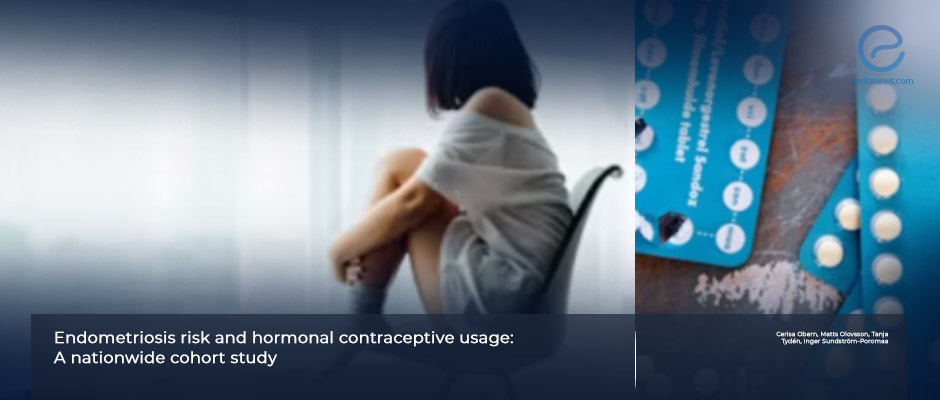Early use of hormonal contraceptives and the probability of endometriosis diagnosis later in life
Apr 5, 2024
A need for an early start of using contraceptives may be a warning sign for endometriosis diagnosis later in life
Key Points
Importance:
- Hormonal contraceptive prescription patterns may provide a platform to understand the effect of HC use on the development of endometriosis
Highlights:
- The need for the use of hormonal contraceptives at an early age and the failure to find an appropriate one should be considered warning signs of an endometriosis diagnosis in the future.
What's done here:
- This retrospective Swedish cohort study aimed to investigate the association between the early need for hormonal contraceptive treatment and the diagnosis of endometriosis later in life.
- The risk of later endometriosis diagnosis in life was calculated using more than 720,000 women from Swedish national registration.
- The parameters such as education level, civil status, parity, infertility, dysmenorrhea, and depression were also assessed.
Key Results:
- More than 3200 women (0.45%) were diagnosed with endometriosis; with a mean age of 17.5, and the diagnosis for endometriosis average age was 21 years.
- Those who started hormonal contraceptives at ages 12-14 had a higher risk of endometriosis diagnosis when compared to the women who began after 17 years of age.
- Having tried more than 3 types of hormonal contraceptives was associated with a twofold increased risk of endometriosis.
- Depression, dysmenorrhea, and infertility were more common in women with endometriosis diagnosis.
Lay Summary
Hormonal contraceptives are the first-line medical treatment of endometriosis. If an adolescent has chronic pelvic pain and is an "unresponder" to hormonal therapy, the likelihood of having an "endometriosis diagnosis" is higher. This sign should warn clinicians about endometriosis diagnosis to refer the adolescent to a tertiary endometriosis clinic.
Obern et al., from the Department of Children's Health, Uppsala University, Sweden, aimed to evaluate whether the early need for hormonal contraceptives could be a warning sign for endometriosis in adolescents.
By using the National Swedish Board of Health for data on more than 720,000 women between 2005 and 2017, the authors compared the data based on hormonal contraceptive prescription comparing ever or never users. Never users were in the reference group. The hormonal contraceptives included all types of oral contraceptives, implants, and levonorgestrel-releasing intrauterine devices.
Adjusted analyses revealed that "ever" use of hormonal contraceptives was associated with 3.61 times increased risk of eventually receiving an endometriosis diagnosis. Women who started hormonal contraceptives at the ages of 12-14 years had a higher risk of endometriosis. The chance of being diagnosed with endometriosis was lower in women who used hormonal contraceptives for more than 5 years. Depression, dysmenorrhea, and infertility were more common in women who were diagnosed with endometriosis.
The authors concluded that the use of hormonal contraceptives at an early age and a failure to find a suitable one should be warning signs of later receiving an endometriosis diagnosis, and these parameters could be used for raising awareness among healthcare practitioners for an earlier diagnosis of endometriosis in adolescents.
This retrospective study was recently published in the British Journal of Obstetrics and Gynecology.
Research Source: https://pubmed.ncbi.nlm.nih.gov/38511416/
hormonal contraceptives adolescent depression dysmenorrhea infertility early diagnosis endometriosis.

